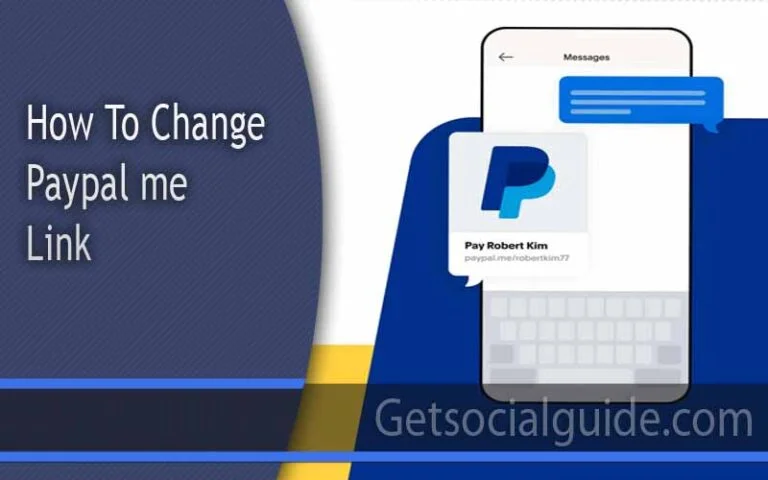How to do Online Reputation Management?
Do you know when your business is presented in an online review section, and attention is paid to it? Online reputation management can be a tricky affair and can be a turnoff. Let us help. In this guest post, we will provide some easy steps to control your online presence and create a positive face by stopping all irrelevant bad news.
![Online Reputation Management 2 6 Tips for Effective Online Reputation Management [updated 2022] - adlibweb.](https://www.adlibweb.com/wp-content/uploads/2019/12/Online-Reputation-Management-Services.jpg)
What is online reputation management and why is it important?
Online reputation management (ORM), in as much as the name suggests, is the practice of tracking, supervising, and optimizing the online publicity of an individual or a group. It is now common knowledge that the majority of customers conduct online research to obtain information about businesses, services, and individuals. ORM is important for several reasons:
Building trust
A powerful online reputation helps gain trust from customers, clients, and partners and fosters good relationships.
Competitive advantage
A positive presence on digital platforms can make an organization passably superior to whatever competitors might have.
Customer retention
The repeat customers are the ones who sell themselves. They will gladly tell friends about their positive experiences. Thus, its popularity and customer base have grown due to increased loyalty.
Increased visibility
Good hiding over the internet can lift the ability to open the door for individuals and businesses to be more visible and reachable by their prospective customers/partners.
Improved search engine rankings
The more a website is renewed and its LinkedIn presence is kept up-to-date and maintained, the higher the chances that Google will detect it, thus improving the search rankings. If you’re researching online reputation repair services, you need to go with a company that has cleared a good name for itself over time and demonstrated success in previous work. These services aid in appealing to search engines such as Google and Bing, pushing down negative reviews and promoting positive content to convince people and businesses of theirs. By tapping into the services of a professional ORM institution, individuals and organizations may safeguard themselves from dangerous articles and stop the habit of bad news about their name or business from going viral.
How can businesses monitor and respond to online reviews effectively?
It is paramount that the business preserves its reputation and draws new consumers to a total product assessment online. Here are some effective ways for businesses to do so:
Use review monitoring tools
A lot of assistance comes into play and allows organizations to fork around from different platforms, of which Google My Business, Yelp, and TripAdvisor are just a few. These tools enable businesses to receive timely alerts and data analytics to be on the front page regarding their reviews.
Set up Google Alerts
Google Alerts is a free tool designed for businesses to set up notifications about their brand name, keyword, or competitors. This approach ensures that companies are constantly updated about any reviews, new mentions, or any other online conversation about their businesses.
Respond to all reviews
Consumers have power over businesses. They can post positive or negative reviews that demonstrate to potential customers that the business listens to consumers’ opinions and that customer service is among the company’s top priorities. To be effectively communicative, responses should be prompt, personalized, and professional.
Address negative reviews
Bad feedback is critical for businesses to upgrade their products/services. By acknowledging the problem and offering a solution, companies can turn an evidently notorious experience into a meaningful one.
Showcase positive reviews
People can also decide to try out a place that has positive reviews for new customers and earns their trust. Companies can demonstrate their superior reviews by showcasing them on their websites, social media, or marketing brochures.
Engage with customers
Reaction to reviews is about fixing problems and determining customer needs. Busiest can give reviews a chance to speak back to develop relationships with clients and promote reliable word of mouth.
Monitor competitors
Monitoring other competitors’ reviews may help companies notice hidden performance aspects in products or services through customers’ eyes. Companies can, therefore, use this to their advantage to improve their products or even provide superiority in competition.
What are the best practices for managing a positive online reputation?
Here are some best practices for managing a positive online reputation:
Monitor and respond to all online reviews and feedback
Replies to readers’ positive and negative reviews quickly and professionally to indicate your attention to feedback and the resolve to meet any troublemaker to make the customers satisfied with your service.
Post evaluates content on social media platforms to interact with customers, respond to their questions and build a kind of community that is devoted to your brand.
Encourage customer reviews and feedback
Offer customers the opportunities to leave reviews on the company’s Google My Business, Yelp, and TripAdvisor pages to encourage a good online reputation.
Foster a culture of excellence
Train staff to deliver highly customer oriented service and offer the chance to develop further and climb ladders within business.
Use PR and branding strategies
Manufacture a brand personality and fuel PR endeavors to obtain positive brand image and to reach new customers.
Use content marketing
Develop meaningful information about your brand that will have an impact on customers and make them value your products.
Engage with influencers and bloggers
Team up with influencers and bloggers in your industry who will help in brand exposure and authenticity.
Use reputation management tools
Use tools including ReviewTrackers or Birdeye to track your online reputation.
Stay proactive
Be proactive shipping negative reviews and feedback beforehand but positive. Try to maintain high quality standards and customer needs responsively.
Learn from negative reviews
Negative reviews offer a chance not only to pursue or correct mistakes but also to learn, please, do not overlook them.
Be up to date and responsive
It is advisable to continuously update your web listings and consider the market variability and other similar issues immediately.
How can ORM services help improve a brand’s online image?
ORM (Online Reputation Management) services can greatly improve a brand’s online image by:
- Tracking all online reviews, comments, and feedback and responding promptly and politely to fix any issues. Emphasizing the brand promise of quality customer service.
- Taking measures to establish and sustain a good reputation created and developed through strategic content creation techniques like blog posts, social media updates, and press releases that will eventually lead the brand to be regarded as an authority in its particular industry.
What are the consequences of ignoring online reputation management?
Not taking care of our online reputation can result in dire consequences not only for us as individuals but also for our businesses. Yet, you can have an Online Reputation Management Guide for further assistance. Here are some of the potential consequences:
Loss of customer trust
Bad evaluations and hoaxes, combined with the Internet, can quickly ruin your reputation in your customers’ eyes and lower their beliefs in your brand.
Decreased sales and revenue
An unhappy online client may affect the brand’s sales due to discouragement from buying similar products and other customers’ negative talk.
Difficulty recruiting top talent
Compatibility with top talent becomes difficult when your company’s online reputation is bad. Because of the negative online presentation, candidates will be discouraged from associating with your company.
Difficulty attracting investors
Investors are likely to refuse to invest in a company with a bad reputation on the Internet, making it complicated to achieve financing.
Legal and regulatory issues
Tending to online reputation management is necessary so that you do not violate the laws by posting wrong or false content online about the business.
Decreased brand visibility
If Google searches show no good words about your online reputation, consumers will have difficulty finding you or learning about your business.
Damage to your brand
To a business person or an individual, your brand is closely connected to the business’s reputation. The reputation of a poor online level could cause problems with personal branding, making it difficult to get new opportunities and build good employment connections.
Loss of partnership opportunities
Having an untrustworthy reputation online makes it harder for a business to score deals, as partners may feel wary of associating with a company with such a bad reputation.



